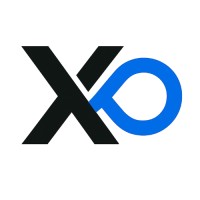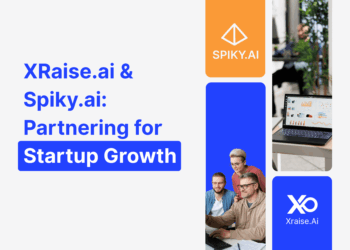Does MongoDB offer a special discount for startups? In a word, yes—and it’s not just a small perk. MongoDB, the document database favorite of modern apps, hands early-stage startups $500 💰 in cloud credits to access the power of MongoDB Atlas. If you’re building your MVP, iterating fast, and trying to keep burn rate low, this one’s for you.
In this guide, you’ll discover everything founders need to know to claim the MongoDB promo code including via XRaise 🎉, maximize your discount, and make an informed call on whether MongoDB is the right tool for your use case. You’ll get clarity on eligibility, what happens after credits expire, and how Atlas’ pricing really stacks up. Plus, we’ll drop actionable tips for early-stage teams and surface top alternatives so you’re not flying blind. 🚀
How to Get MongoDB Promo Code
Getting your MongoDB discount through XRaise is simple. Just follow these steps:
1️⃣ Visit the MongoDB Promo Code page on the XRaise website.
2️⃣ Fill out the short form with your name, email, and website.
3️⃣ You’ll receive the MongoDB promo code and step-by-step instructions via email within 24 hours
With just a few clicks, you can access a vast database of funding opportunities, including grants, tech credits, accelerators, and pitch events.
What is MongoDB?
MongoDB is a developer-first, document-oriented NoSQL database built for teams that move fast and scale globally. Instead of storing your data in rigid tables and columns, MongoDB organizes application data as flexible JSON-like documents—think objects, not rows📲. That means fewer schema headaches, less upfront planning, and the freedom to evolve your product as user needs shift.
Why does this matter for startups? You get the freedom to prototype and iterate fast, store complex/nested data easily, and focus on delivering features—not wrestling DB migrations.
Key Benefits for Startups:
- 🛠️ Schema Flexibility: Change your data model as your app grows (killer for MVP→product-market fit loops).
- ☁️ Zero-Ops Cloud (Atlas): Fully managed DB with automated scaling, backups, and global replication—perfect for lean teams that can’t afford downtime or DBA overhead.
- 🔗 Strong Ecosystem: Connects seamlessly to Node.js, Python, Java, Go, popular ORMs, and serverless platforms.
Standout Features:
- 📄 Flexible document storage (BSON/JSON)
- 📦 Built-in sharding for scale (Atlas automates this)
- 🔍 Powerful, developer-friendly query language
- 🧠 Atlas full-text search, triggers, and analytics built-in
- 🌐 Multi-cloud: deploy on AWS, Google Cloud, or Azure
- 🔐 Security-first: encryption, IAM, VPC, and compliance (SOC, ISO, HIPAA with enterprise)
Integrations & Use Case Sweet Spots:
- 🧑💻 SaaS & consumer apps (user profiles, events, metadata)
- 🛒 Ecommerce backends (dynamic product catalogs)
- 📊 IoT, analytics, and real-time feeds (high-ingest/varied data)
- 🧭 Content-based marketplaces, social apps, or analytics dashboards
MongoDB is trusted by everyone from pre-seed startups to IPOs—Adobe, Coinbase, SAP, and flashy unicorns have all scaled on it.
How Much is the MongoDB Promo Code Worth?
If you’re an early-stage founder trying to stretch every dollar and move fast, here’s why this deal is so powerful 💸: Not only does it offer access to a robust, production-grade database with zero upfront cost, but it also gives you room to experiment, iterate, and scale without hitting infrastructure roadblocks early on. MongoDB Atlas credits give your startup breathing room to build confidently before the bills come in.
- 💰 Up to $500 in MongoDB Atlas credits—usable across all paid Atlas features (clusters, storage, backup, Atlas Search, serverless, you name it).
- 🚀 Apply credits to existing OR new projects—no sandbox restrictions.
- 🕒 Credits are usually valid for up to 12 months post activation, giving you a full runway to iterate and launch.
What’s that save you?
- 💵 You’re covering Atlas’ monthly costs while you validate product-market fit (and skipping the urge to cheap out with unreliable free solutions).
- 📉 For production-ready clusters, $500 will almost always get you several months of frictionless deployment, depending on usage.
- 💸 Compared to self-hosting or paying sticker price, it’s hundreds (or thousands) in savings while you’re cash-strapped. To put in context: a standard production cluster (M10, multi-region) starts around $57/month—so you could stretch the savings several months at MVP or staging scale.
Bottom line: 💪 Up to $500 of runway to experiment, iterate, and launch—before a single bill hits your startup’s credit card.

Eligibility and Tips to Maximize Your MongoDB Discount
Securing MongoDB’s Atlas credit isn’t a guaranteed free-for-all, but if you fit the archetype of a true early-stage builder, you’re in luck.
Who qualifies?
- 🌱 Incorporated (pre-Series B or earlier, with preference for pre-Series A)
- 🕰️ <5 years old, less than $2M–$5M in funding, and under $1M annual revenue
- 🆕 First-time Atlas user (or not on a paid account currently)
- 🚫 Not a consultancy/agency—product startups only
- 📧 Applying with a work email & real company domain (ditch the Gmail)
Pro tips for maximizing:
- ⏳ Apply before paying for Atlas—retroactive credits are rarely possible.
- 🧾 Stack with other cloud credits: AWS Activate, GCP for Startups, or Azure may offer additional infra perks.
- 🧑🏫 Go through accelerators or partners (YC, Techstars, XRaise)—affiliation can speed approval and occasionally surface higher-value deals.
- 🗓️ Time your ramp: Start Atlas-free tier or demo clusters, then unlock credits just before full production/test migration for max financial “runway.”
- 📈 Monitor expiry: Credits vanish after 12 months. Set Atlas usage alerts, scale clusters gradually, and use the period for load-testing, not just idle staging.
Common pitfalls that cause rejections:
- 🚫 Applying as an individual, agency, or school project (use MongoDB student/university offers instead)
- ⚠️ Already using a paid Atlas plan (new accounts only)
- 🕵️♂️ Leaving out basic business info (website, funding, stage)
MongoDB Plans and Pricing
After credits expire (or if you’re forecasting future costs), understanding how MongoDB Atlas pricing works will save you budgeting headaches.💵
Overview:
Atlas pricing is transparent and based on resources: cluster size, storage, backup, cloud provider, and traffic. There’s a generous free tier (shared M0) plus discounted starter clusters—no credit card required.
| Plan/Cluster | Monthly Price | Core Features | Who’s it for? |
|---|---|---|---|
| 🆓 Atlas Free (M0) | $0 | 0.5GB, sandbox use, basic analytics, no backups | MVP/dev/test only |
| 🔄 Shared (M2, M5) | ~$9–$25 | 2–5GB storage, daily backups, SSL, shared resources | Small teams, staging |
| 💼 Dedicated (M10+) | Starts ~$57 | 10GB+, full backups, scaling, multi-region, VPC | Prod/scale |
| ⚙️ Atlas Serverless | Pay as you go | Billed per read/write, no infra sizing | Spiky/uncertain load |
| 🏢 Enterprise | Custom | Compliance (HIPAA, SOC2), premium support | Regulated/large orgs |
Where do credits apply?
💳 Almost everywhere: any paid Atlas usage, dedicated clusters, serverless, search, advanced features. Perfect for teams ready to graduate from sandbox to production.
💢 Pro tip:
After your $500 credit, a modest staging cluster (~$25/mo) still leaves months of buffer. Production-ready dedicated clusters (M10+) start at ~$57/mo—plan your credit window accordingly.
Who Should Use MongoDB?
MongoDB isn’t right for everyone, but for fast-moving startups juggling speed, scale, and complexity, it’s a force multiplier. 🌟 It frees developers from rigid schemas, lets you build features fast, and handles the backend headaches you don’t have time for. Whether you’re iterating toward product-market fit or prepping to scale, MongoDB Atlas gives you a head start.
Best fit:
- 🚀 Pre-seed to Series A teams, 1–20 engineers
- 💻 Building modern SaaS, consumer platforms, analytics dashboards, or marketplaces
- 🧩 Data is complex, nested, rapidly evolving, or unstructured (think: user events, metadata, product catalogs)
- 🧠 You value flexible schema (speed over SQL rigidity) and cloud automation—no DBA on payroll
- 🕒 Have little time to manually scale or manage downtime (Atlas handles it)
Common pain points solved:
- 🔄 Avoids bottlenecks from up-front schema design (iterate data models as product evolves)
- 🧰 Simplifies dev workflow (scan, insert, query as JSON/documents)
- 🧲 Reduces operational drag (Atlas manages scaling, backups, clusters)
- ⚡ Kickstarts real-time apps (triggers, change streams, built-in search)
Not a fit if:
- 🔗 Your app is all about heavy SQL JOINs and transactional consistency (use PostgreSQL)
- 🏛️ Deeply regulated environments where on-prem SQL is a must (see Enterprise MongoDB or classic RDBMS)
- 💸 You’re bootstrapping with $0 and don’t expect to scale past basic free tiers—MongoDB pricing is transparent but does add up as you grow
Best Alternative to MongoDB
Choosing the right engine for your backend is a make-or-break call. Here’s how MongoDB compares with top startup favorites:
| Tool | Key Strengths | Trade-Offs | Good Startup Use Case |
|---|---|---|---|
| MongoDB | Flexible, cloud-native, fast MVP iterating, doc-oriented | Not SQL; credits expire | SaaS, analytics, ecomm, IoT |
| Amazon DynamoDB | Fully managed, serverless scaling, AWS-native | Limited querying, more opaque pricing | Pure AWS stack, IoT, low-ops |
| Google Firestore (Firebase) | Real-time sync, mobile-first, no infra | Rigid querying, scale costs | Mobile apps, SaaS, chat/collab |
| PostgreSQL (Supabase/RDS) | SQL power, transactional, JSONB, mature | More schema/ops setup | Analytics, fintech, heavy reporting |
🔥 Insight:
If you’re “all in” on AWS and care more for hands-off scaling (vs. flexible querying), DynamoDB rocks. Need SQL, or plan to mix relational and doc-style data? PostgreSQL with JSONB columns (e.g., via Supabase) is nearly as lean for MVPs.

FAQ on MongoDB Promo Code
❓ Is the MongoDB Promo Code recurring or a one-shot deal?
It’s a one-time grant; renewals aren’t automatic. Best to treat the credits as your runway to get to PMF (product-market fit) or your first paid users.
❓ Can these credits be used on any Atlas paid plan?
Yes—use them for dedicated clusters, serverless, full-text search, backups, and all official Atlas features.
❓ Do I need accelerator/VC backing to qualify?
Not strictly, but affiliation fast-tracks your application (YC, AWS Activate, etc.) and may surface larger offers.
❓ Can I combine with AWS/GCP credits?
Sometimes—you can use cloud provider credits for AWS/GCP infra alongside Atlas credits, but stacking multiple sets of MongoDB startup credits isn’t allowed.
❓ What happens after my credits run out?
All usage switches to standard Atlas billing. Monitor usage so you don’t get surprised by your first real invoice.
❓ Are non-profits or students eligible for MongoDB Promo Code?
No. These are for incorporated, early-stage product startups. Students should check out MongoDB University; non-profits can pitch sales for custom options.
❓ Can credits cover on-prem or self-hosted MongoDB?
Nope—Atlas cloud only.
Final Thought
If you’re an ambitious early-stage team, MongoDB’s $500 Atlas credit is hard to beat. You get months of fully managed, production-grade backend—free time and zero infrastructure headaches. Hard to think of a better fintech, SaaS, analytics, or mobile backend accelerator, especially when every dollar spent is scrutinized by founders and investors.💕💹
Use this window to experiment, pressure-test your MVP, and chase growth without database bottlenecks.
🌟 Don’t wait—sync up your eligibility, plan your onboarding, and use the Atlas runway to reach your next milestone.
Claim your MongoDB promo code on XRaise today 🚀, and give your startup the database agility it deserves.










